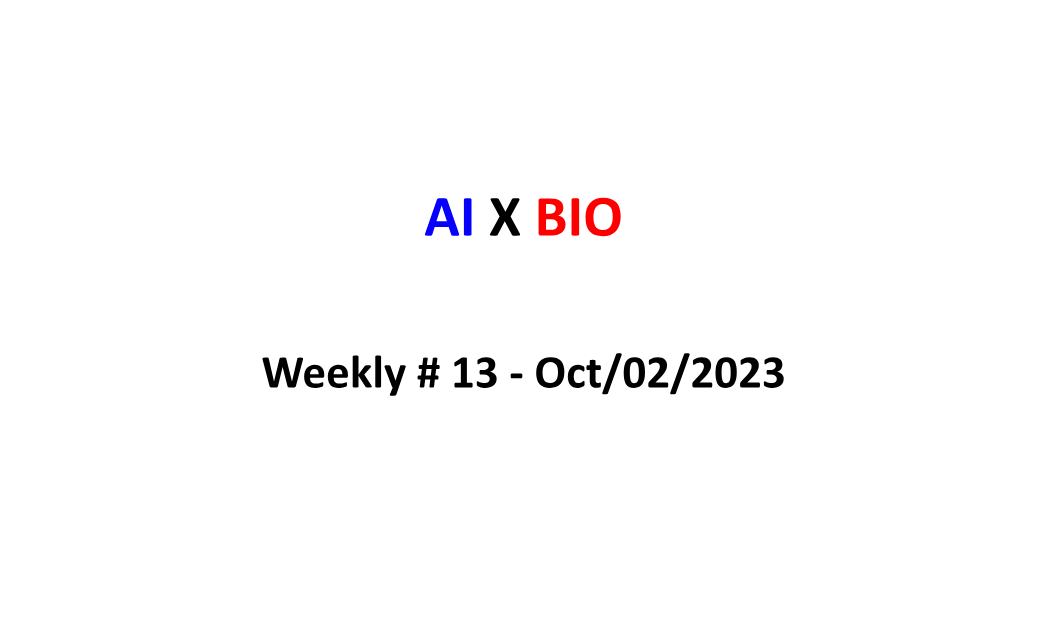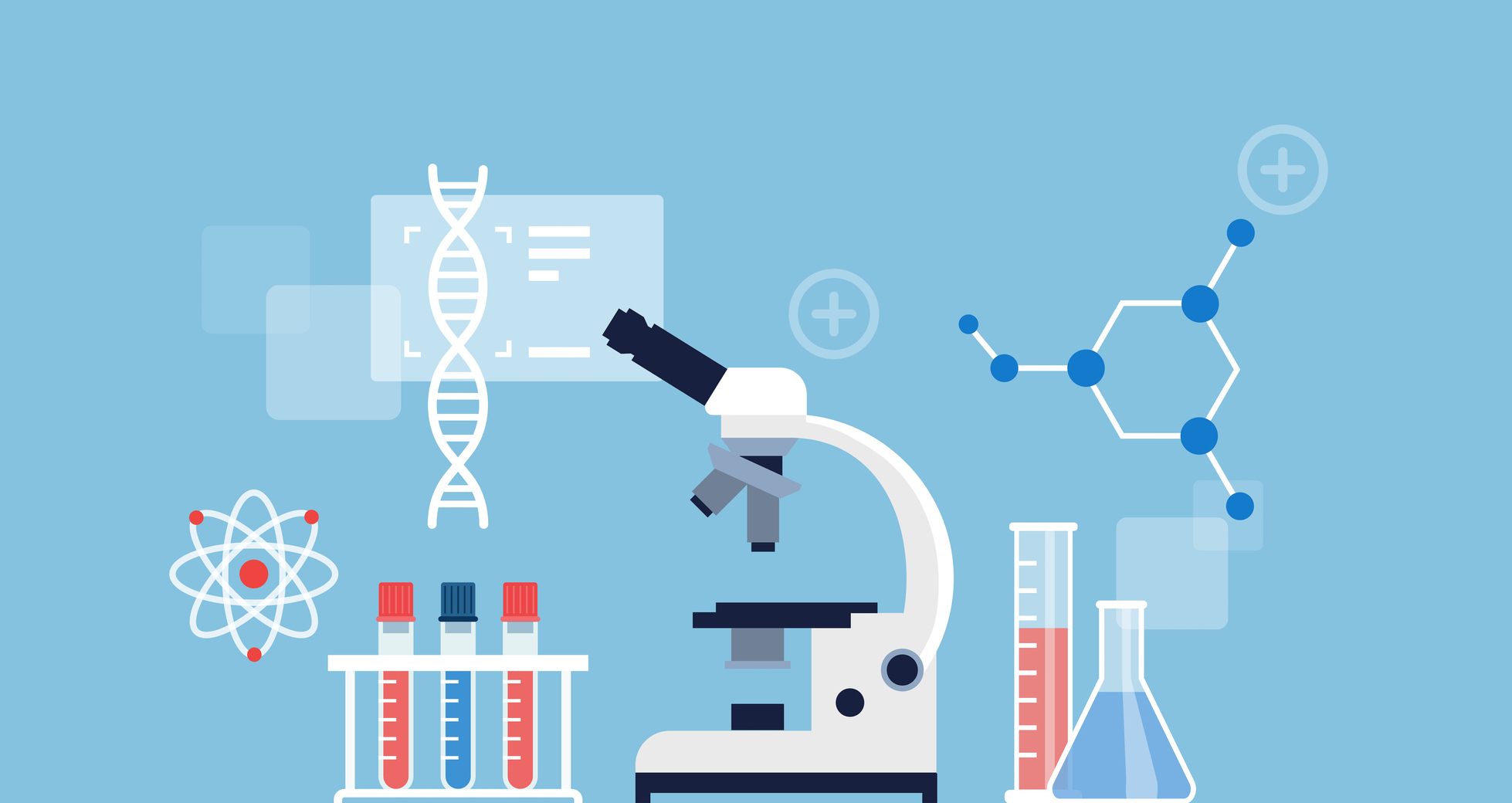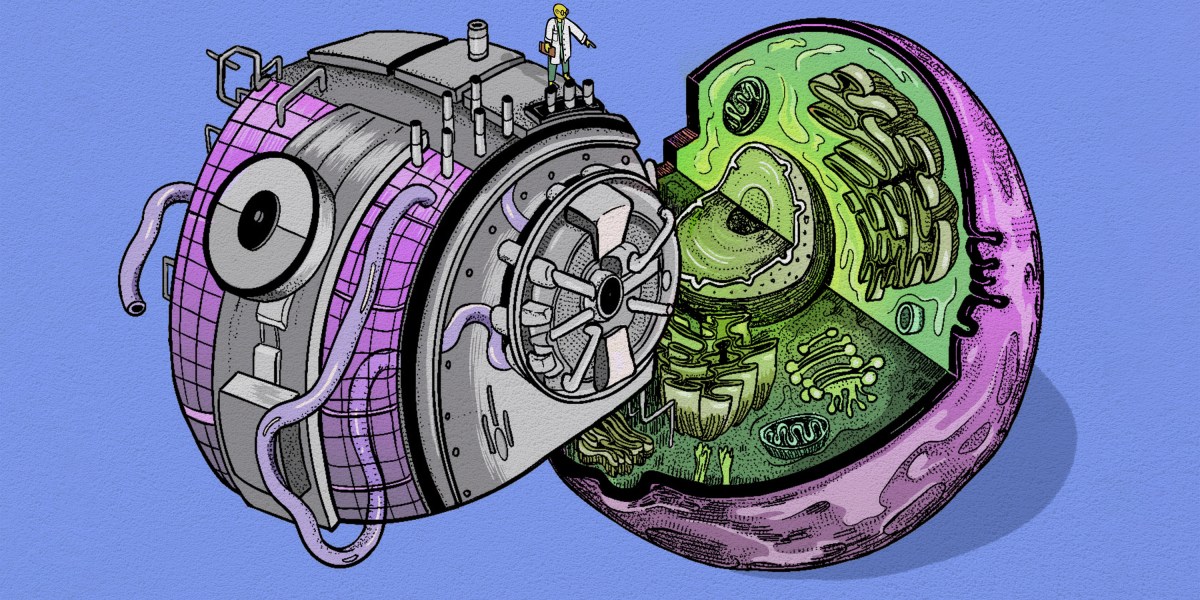- AIXBIO
- Posts
- AIXBIO Weekly #13 - Oct/02/2023
AIXBIO Weekly #13 - Oct/02/2023

Partnerships
Quris-AI and Merck KGaA Extend Collaboration: Pioneering AI-Driven Drug Safety Assessments
Quris-AI, an AI innovator in the pharmaceutical sector, has announced the extension of its collaboration with Merck KGaA, Darmstadt, Germany. This decision follows a successful preclinical study where Quris-AI's platform was assessed for its ability to predict drug toxicity,, and reducing reliance on animal testing comparing it to traditional in vitro and in vivo methods. The results were promising, leading Merck KGaA to further explore the platform's capabilities, especially in identifying liver toxicity risks for various drug candidates. This collaboration could potentially lead to Merck KGaA obtaining an exclusive five-year license in a specific disease domain.
The pilot study showcased the platform's accuracy in predicting drug-induced liver injuries. Quris-AI's BioAI platform, backed by 29 granted and pending patents, offers top-tier drug safety using advanced machine learning and generative AI models. These models are trained on Quris-AI's proprietary data, derived from its innovative patient-on-chip platform. This approach not only accelerates drug development but also significantly reduces costs, presenting a viable alternative to traditional animal testing. Dr. Isaac Bentwich, CEO of Quris-AI, highlighted the transformative potential of their platform in the drug development process, emphasizing its accuracy and cost-effectiveness.
NYU and the Korean Advanced Institute of Science and Technology (KAIST) have initiated a significant collaboration on Artificial Intelligence
NYU & KAIST collaborate on a major AI & digital tech research initiative. Key figures, including Korean President Yoon Suk Yeol & Turing Prize winner Yann LeCun, marked the partnership. The effort aims for world-class AI research & will be headquartered at NYU.
Regulation and Ethics
FDA Clears AIRAmed's AI-Powered Brain Volumetry Software for Early Dementia Detection
German medical tech firm AIRAmed has secured FDA 510(k) clearance for its innovative AIRAscore system. This medical image management system, powered by deep learning and AI, offers crucial brain volumetry data, assisting physicians in the early detection of Alzheimer’s and other dementia types. The technology can quantitatively assess brain volume using standard MRI scans in just five minutes. With an estimated 5.8 million Americans affected by Alzheimer's and related dementias, early detection is paramount. Traditional diagnosis often occurs in advanced stages, potentially after irreversible damage. AIRAscore provides a tool for the swift identification of areas with abnormal brain volume.
The system presents data in a format akin to a blood lab report, offering detailed insights into various brain regions. This information is invaluable for physicians diagnosing different dementia forms. The software is cost-effective and can be set up in under an hour. After four years of commercial use in Europe, AIRAscore is set to be available in the U.S. by early 2024.
Stanford's Urgent Appeal: Ensuring AI's Ethical Deployment in Biomedicine
Stanford researchers are urgently calling for a coordinated approach to ensure the ethical deployment of AI in biomedicine and clinical care.
With AI models already enhancing hospital workflows and guiding clinical decisions, the need for a comprehensive strategy is paramount. Emphasizing the potential of intelligent changes and asking for governmental and institutional collaboration on a nationwide plan.
This plan aims to ensure that AI technologies do not inadvertently harm patients. They also urge the FDA to demand greater transparency from AI designers, particularly regarding training data, potential biases, and algorithmic decision-making processes. It also highlights the importance of clear policies regarding AI's clinical use, ensuring patients are informed and can opt out if desired. With hospitals and academic institutions expressing concerns about AI's safety and equity, the call for clear guidelines and regulations is more pressing than ever
Investment & Funding
Valo Health & Novo Nordisk Team Up: AI-Powered Cardiometabolic Disease Treatments on the Horizon
Valo Health and Novo Nordisk have announced a significant collaboration to discover and develop novel treatments for cardiometabolic diseases. This partnership will harness the power of artificial intelligence (AI) and leverage Valo’s Opal Computational Platform™, which includes access to real-world patient data. The goal is to accelerate the discovery and development of new cardiometabolic drug programs. As part of this collaboration, Novo Nordisk has licensed three preclinical drug discovery programs related to cardiovascular diseases from Valo. Financially, Valo stands to receive an upfront payment, potential near-term milestone payments totaling 60 million US dollars, and could be eligible for milestone payments for up to 11 programs, amounting to a staggering 2.7 billion dollars.
Additionally, research and development funding and potential royalty payments are on the table. Both companies are optimistic about the collaboration, with Novo Nordisk's executive vice president, Marcus Schindler, emphasizing the potential of AI and machine learning in drug discovery. He believes that Valo's unique approach to utilizing these technologies on real-world human data can provide new insights and translate them into potential therapeutics for patients with cardiometabolic conditions. The collaboration is expected to span the entire drug discovery continuum, with both companies working closely to derive novel insights from human genetic and patient data in cardiovascular disease.
Glass Health Secures $5M Seed Funding for its AI-Powered Clinical Support Platform
Glass Health recently announced a significant milestone: a $5 million seed round funding led by Initialized Capital. This funding is directed towards their innovative AI-powered clinical decision support platform. The overarching goal of this platform is twofold: to alleviate the increasing issue of clinician burnout and to elevate patient outcomes on a global scale.
The platform utilizes a large language models, which are fine-tuned by a team of physicians to ensure that the AI's recommendations are not only advanced but also clinically relevant and up-to-date.
Designed with a doctor-facing interface, Glass Health ensures that clinicians remain in control, supervising and reviewing the AI's outputs before application. This design choice emphasizes the importance of human judgment in the medical field, ensuring that AI acts as a supportive tool rather than a replacement.
The advancements by Glass Health signify a transformative shift in healthcare. By integrating AI into clinical decision-making, there's potential for more accurate diagnoses, personalized treatments, and overall improved patient care.
The Landscape
Harnessing AI to Decode the Mysteries of Cells: A Leap Towards Curing Diseases
Cells, the smallest living units, are crucial for understanding diseases. Yet, much about them remains a mystery. The potential of AI in simulating every cell state and type can revolutionize our understanding of cellular responses to various conditions. The Chan Zuckerberg Initiative (CZI) is aiding in generating scientific data and building the necessary computing infrastructure.
With AI and vast scientific data, the structure of almost all known proteins has been predicted. Since 2016, CZI has globally supported research efforts to generate and annotate data about cells. A global consortium of researchers is working on the Human Cell Atlas, aiming to chart cell types from development to adulthood. CZI is also building a high-performance computing cluster to develop new AI models trained on extensive data sets about cells. This will eventually enable scientists to simulate every cell type in both healthy and diseased states. The ultimate goal of CZI's scientific endeavors is ambitious: to help the scientific community cure, prevent, or manage all diseases by the end of this century.
Clarivate Spotlights Seven Pioneering AI/ML Innovators in Life Sciences
Clarivate Plc has unveiled its annual "Companies to Watch" report on September 27, 2023. This year's edition spotlights seven groundbreaking companies that are harnessing the power of artificial intelligence (AI) and machine learning (ML) to revolutionize drug discovery and development. The report underscores the rapid acceleration in IP creation and the burgeoning acceptance of AI and ML in the realm of drug discovery. Notably, the United States and Mainland China are at the vanguard of this AI-driven innovation, with China recently surpassing the US in related patent activity. The report delves into the endeavors of these innovators, from tapping into the vast healthcare datasphere to understanding the intricacies of disease biology. Companies like AQEMIA, Auransa Inc, and Enveda Bioscience are among those highlighted, each bringing a unique approach to drug discovery using AI. The report is a testament to the growing influence of AI and ML in shaping the future of drug discovery, with young startups leading the charge.
Talks & Interviews
AI's Role in Clinical Practice: Insights from Google Health
In a conversation hosted by JAMA Network, Dr. Kirsten Bibbins-Domingo, editor-in-chief of JAMA, speaks with Dr. Michael Howell, Chief Clinical Officer at Google Health. The discussion delves into the transformative role of AI in the medical field.
Dr. Howell joined Google Health to bridge the gap between Silicon Valley innovations and healthcare needs. He emphasizes that AI should assist clinicians rather than replace them. Drawing an analogy, he likens the evolution of AI to the introduction of penicillin in medicine – a game-changer.
One of the significant advancements highlighted is "Med Palm," an AI model that has shown rapid progress in answering medical exam-like questions. Within a span of five months, its accuracy jumped from 67% to around 86-87%, equivalent to top-quartile physician test-takers. Furthermore, when real-world questions were posed to the model, blinded physicians, on eight out of nine dimensions, preferred the AI's answers over those from their peers.
2023 Hoffman-Yee Symposium: AI's Role in Human-Centered Innovation and Research
The 2023 Hoffman-Yee Symposium, hosted by Stanford HAI, delves into the multifaceted role of AI in human-centric applications. James Landay, the vice director at Stanford HAI, introduced the symposium, emphasizing AI as a dual-edged sword, capable of both positive and negative impacts. HAI's mission is to ensure AI's benefits are widespread and human-centered. Their research focuses on three areas: understanding AI's societal impact, enhancing human capabilities with AI, and advancing AI inspired by human intelligence.
The Hoffman Yee grant program, a multi-year initiative, funds such research. Projects showcased are expected to shape AI's future across academia, industry, government, healthcare, and civil society. The symposium also highlighted the achievements of teams funded in previous years.
The symposium underscores the importance of interdisciplinary collaboration in harnessing AI's potential for societal good. Also touched upon the potential of AI in various sectors, including healthcare. While specific applications in healthcare or pharmaceuticals were not detailed in the provided transcription, the overarching theme emphasized AI's potential in human-centric applications, which could encompass medical and healthcare innovations.




